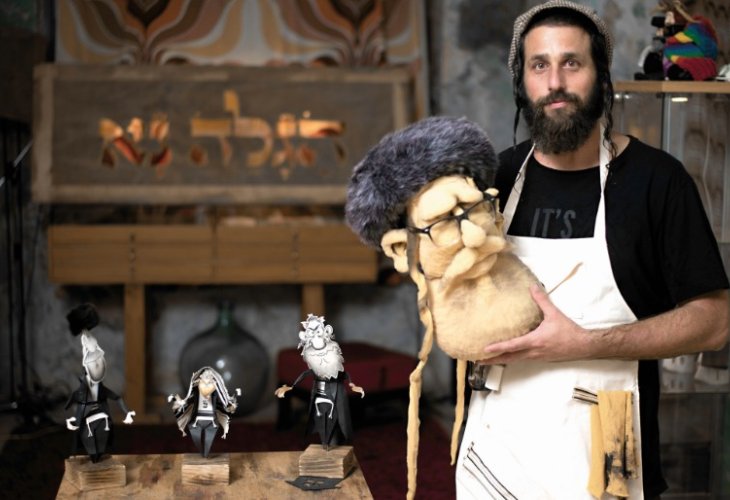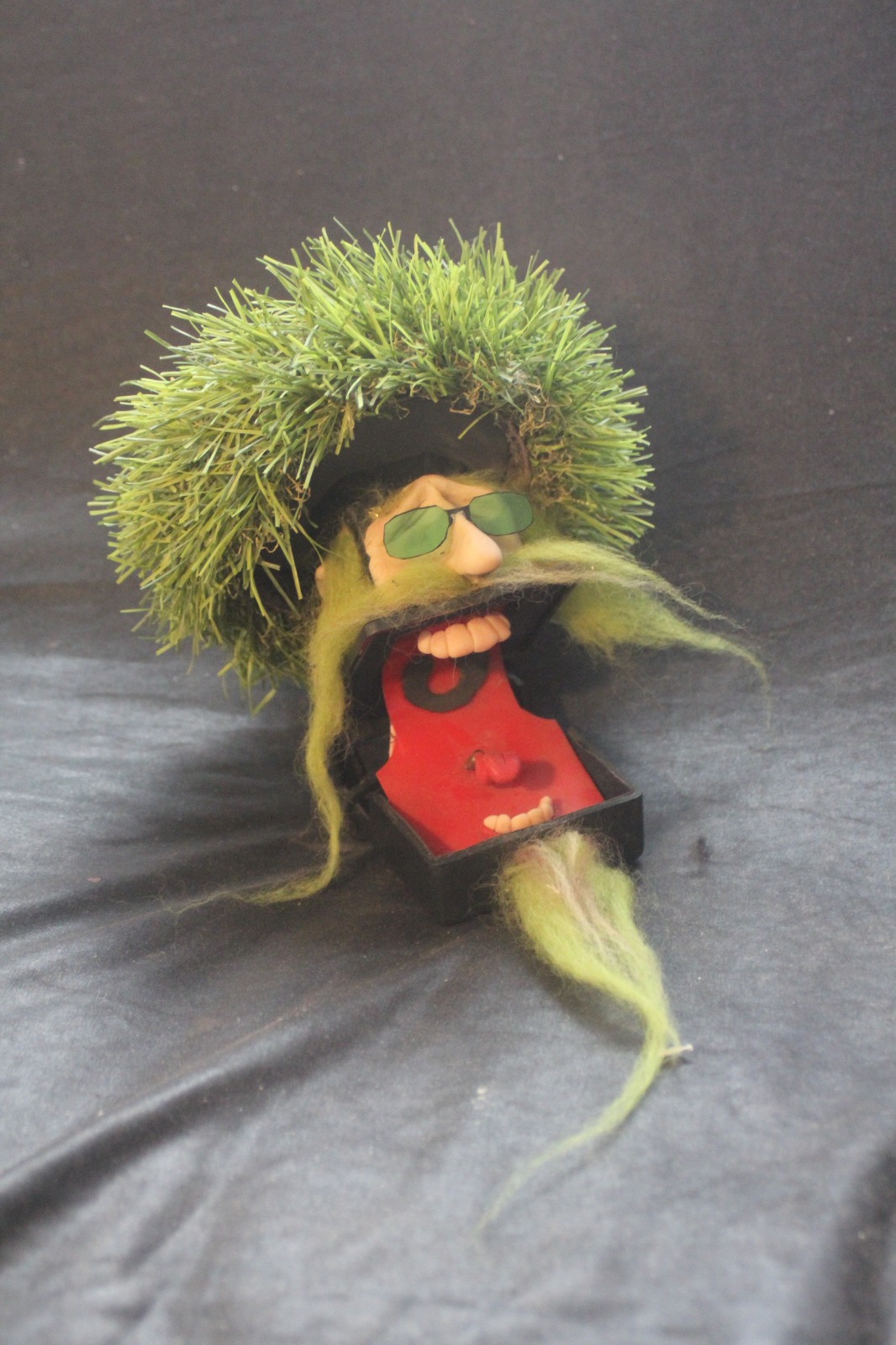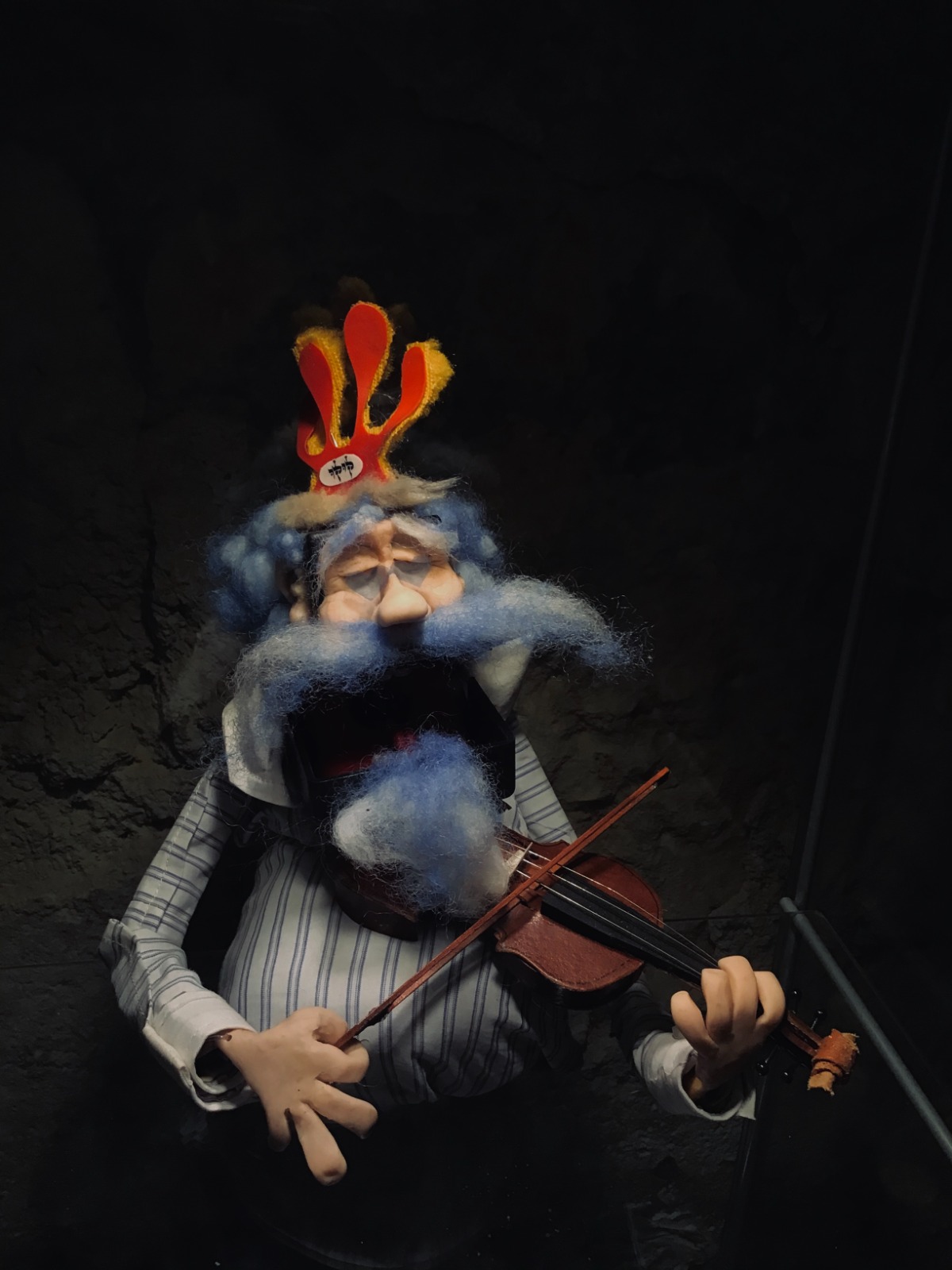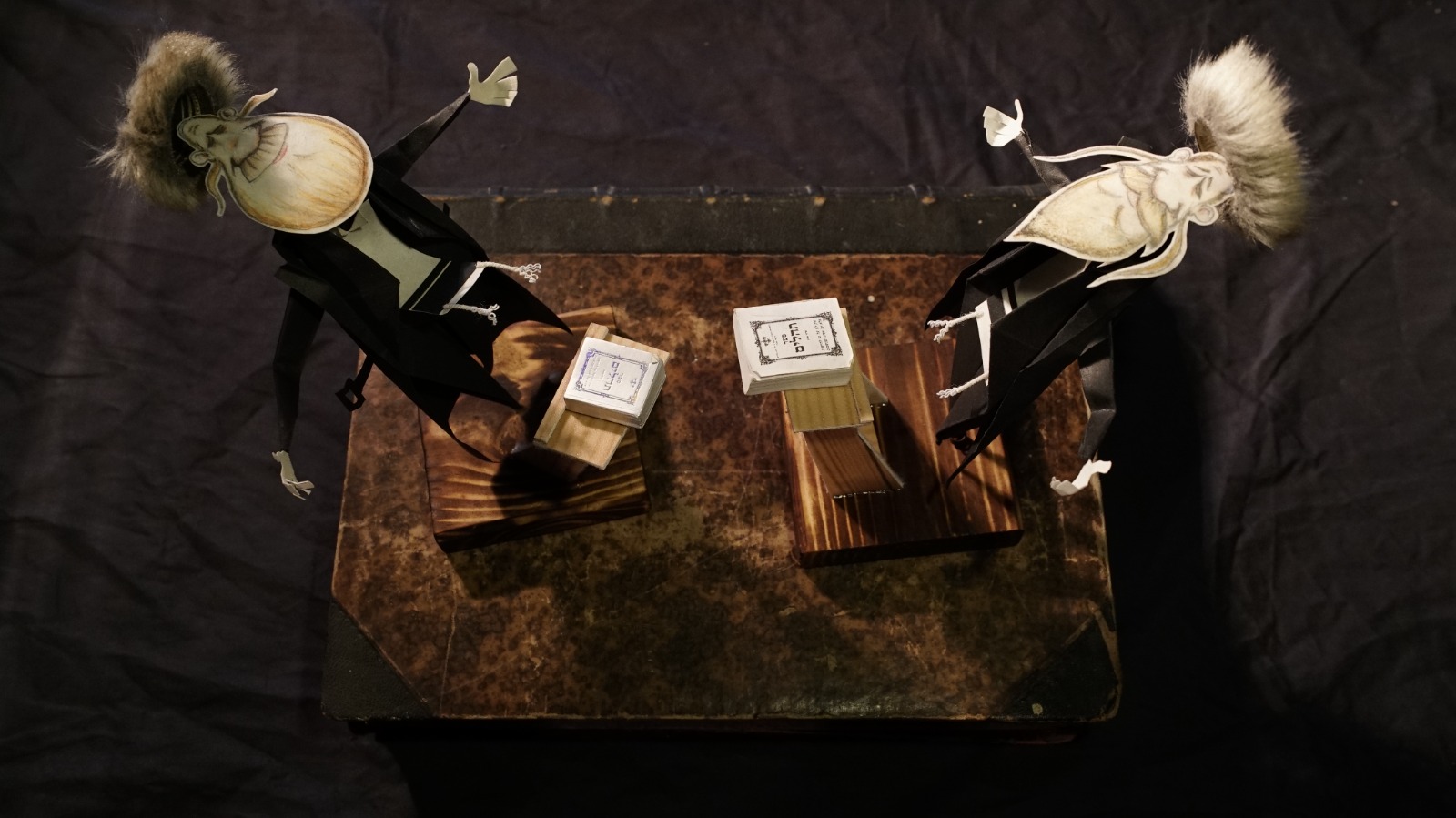"In the Middle of the Show, a Woman Entered and Told Us: 'I Was Released From the Hospice'"
Since returning to Jewish faith, Avshalom Eshel has been engrossed in Hasidic stories, dramatizing them, crafting special puppets, and even creating a special place for them, the 'Kretschmer' - an inn for Hasidic stories. So what truly awaits there, and what are the most captivating stories that pass through?
 Avshalom Eshel
Avshalom EshelPassersby who find themselves in the picturesque village of Ein Kerem often stumble upon an intriguing place called the 'Kretschmer,' usually taken by surprise. The name, which sounds as if borrowed from an unfamiliar language, along with the giant puppet swinging vigorously at the entrance, raises many questions.
Upon entering the Kretschmer, the questions only increase, as it's quite difficult to comprehend what exactly exists there. On one side, it resembles a study house with educational books, on the other, they offer drinks and light refreshments, and in between, there are so many puppets and piles of books.
However, those who reside in Ein Kerem or frequently visit are familiar with the 'Wayside Inn' (the Hebrew translation of 'Kretschmer') and the fascinating man at its helm - Avshalom Eshel, who introduces himself as a scribe, musician, actor, and mainly a puppeteer who creates and operates puppets.
Puppeteer, Creator, Scribe
"Our Kretschmer is a wayside inn for Hasidic stories," Avshalom explains about the unique place he established. "Over the years, I've built over 150 puppets of all kinds and species," he adds, "and all these puppets serve one purpose - to tell stories about Hasidic tales, aiming to provide people with a different perspective on life and to share the kindness they embody. A Hasidic story isn't just a plot; it offers us a different switch on life. In my view, the Hasidic story comes to tell us: 'It's not what you thought; it's different from what you imagined,' and that's the great revolution I get to make here."
For 14 years now, Avshalom has lived in Ein Kerem with his family, and if anyone has yet to visit this neighborhood, he warmly invites them. "Ein Kerem is a very special neighborhood in Jerusalem, and we are located in the most beautiful part - right by the spring," he shares. "Immediately after we moved here, we established near our home the 'Kretschmer,' which includes a synagogue, a mikveh, a beautiful Hasidic courtyard, and even a gallery and a large performance space. We even set up a place for drinks, so people can enjoy a drink and be happy."

And who do you intend the Kretschmer for?
"First and foremost, it's intended for people living here in the village. We meet them at the Kretschmer on Shabbat and holidays, and even on regular days. There is a study house here, and we also offer classes and workshops. I even teach calligraphy and scribal writing. But the main thing is the performances I do with the puppets. Because that feeling when you enter the room, hear a Hasidic story, and feel the atmosphere truly coming from the walls, is a completely different feeling. You feel like you're inside the pages of the Hasidic story, with the ceiling lamp telling a story, the puppet hanging on the wall talking to you, and even the turkey hiding under the table reminding you of the famous story by Rabbi Nachman of Breslov, about the prince who thought he was a turkey.”
When Avshalom talks about the Hasidic stories, warmth is evident in his voice, and it's no coincidence. "I returned to my faith during my army days, around 20 years ago," he recounts, "In those days, the first book I picked up, which I couldn't put down to this day, is 'Tales of Ancient Times' by Rabbi Nachman. I always felt there was something profound in it. When my father, may he rest in peace, was nearing the end of his life, we would read the Hasidic stories together, making our farewell special and deeply spiritual. Even when my six children were born, I felt I had a Hasidic story that connected uniquely with each one, becoming part of them. These stories are part of our lives."
And when did you start creating the puppets accompanying the stories?
"After the army, I studied animation and film production at Bezalel for a few years. In my final year of studies, my wife bought me a quill, parchment, and ink as a gift, and then I changed direction completely. Instead of computers and animation, I started dealing with scribal writing, spending countless hours writing tefillin and mezuzahs. At that point, I happened to prepare a few performances and travel with them to different places, realizing I wanted to combine all these areas. So I began building various puppets and using them in the shows I present. Among other things, I have a show I travel with in the Train Theater called 'Telling Scribes' aimed at young children, and I have other shows like the 'Kretschmer Show' and a variety of other performances I present with a partner. These days, we're working on a new, different, and unique show because it specifically addresses a topic that's rarely spoken about - the topic of death and the end of life".
It's surprising you chose to deal with this particular topic...
"The truth is, it all started from years of engaging with music," he reveals, "For 12 years, I accompanied terminally ill patients, visiting hospices and oncology wards to play them songs of their choice. I was exposed to death in the closest way, bringing me to give special attention to this issue when I realized how important it is to view it through the lens of faith. That's how I created the show dealing with death, with irony and seriousness, featuring special puppets I crafted for it, including a puppet of the Angel of Death himself, resembling Grover from Sesame Street, with a big nose and angelic wings. No one in the audience remains indifferent when the Angel of Death shows up and surprisedly asks, 'Did I really come at a bad time?' Ultimately, through this show, we're able to convey significant messages, and that's what matters. After all, we will all die one day, and it's good to contemplate that occasionally."

He even has a particularly moving story about this show: "During one of the performances, right in the middle of the segment with the Angel of Death, a woman I once accompanied at the hospice during a very critical condition unexpectedly entered. I was stunned. I couldn't understand how she 'rose from the grave.' To my great astonishment, she shared that she had experienced a true medical miracle. After being hospitalized in hospice, clearly heading in one direction, she surprised the doctors by getting stronger each day, eventually leading to something very rare in hospices - she was discharged home. She has been living healthily and wholesomely for several years since then. When she suddenly appeared at the show, introduced herself, and shared her story, the audience was in complete shock. It illustrated more than anything the show's message - we all need to live each day of our lives as if it's our last, yet, at the same time, also believe and know that miracles happen in the world. Everything is from Hashem, and only He decrees the life span of every living being."
"Want to Be Together"
Who are the people visiting the Kretschmer?
"It's more accurate to ask who doesn't," Avshalom responds with a smile, "People from all walks of life, all types and styles, come here, the common denominator being they are all Jews opening both their eyes and hearts. The Kretschmer is open to anyone who wishes to enter, and I believe one of the primary things Hashem wants from us is for us to be together and love each other. My personal feeling is when everyone stands to pray side by side, it creates an extraordinary atmosphere of remarkable unity."
Do you feel people leave here differently than how they entered?
"I am sure that everyone feels they've gained something here that they didn’t have before, although it's not always immediately visible. It's not like you enter here and leave with answers to all questions, but the mere realization that there are questions and a place to solve them is already progress."

And what about future plans? How do you think to develop the Kretschmer?
"At this stage, we plan to renovate the mikveh we established near the Kretschmer and to expand to a larger space where we can offer hospitality, enabling our guests to sleep over and not just taste something and pray. Our goal is for everyone to come visit, and that’s what we want most to happen here."

